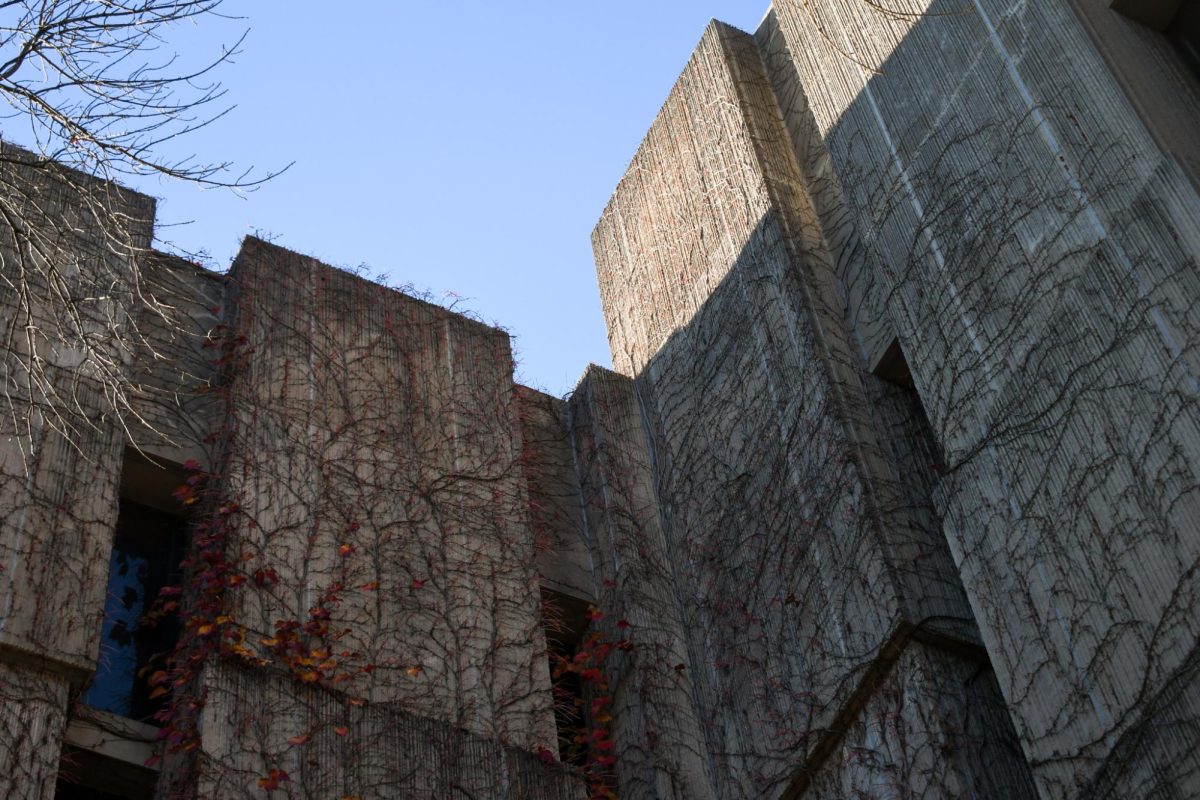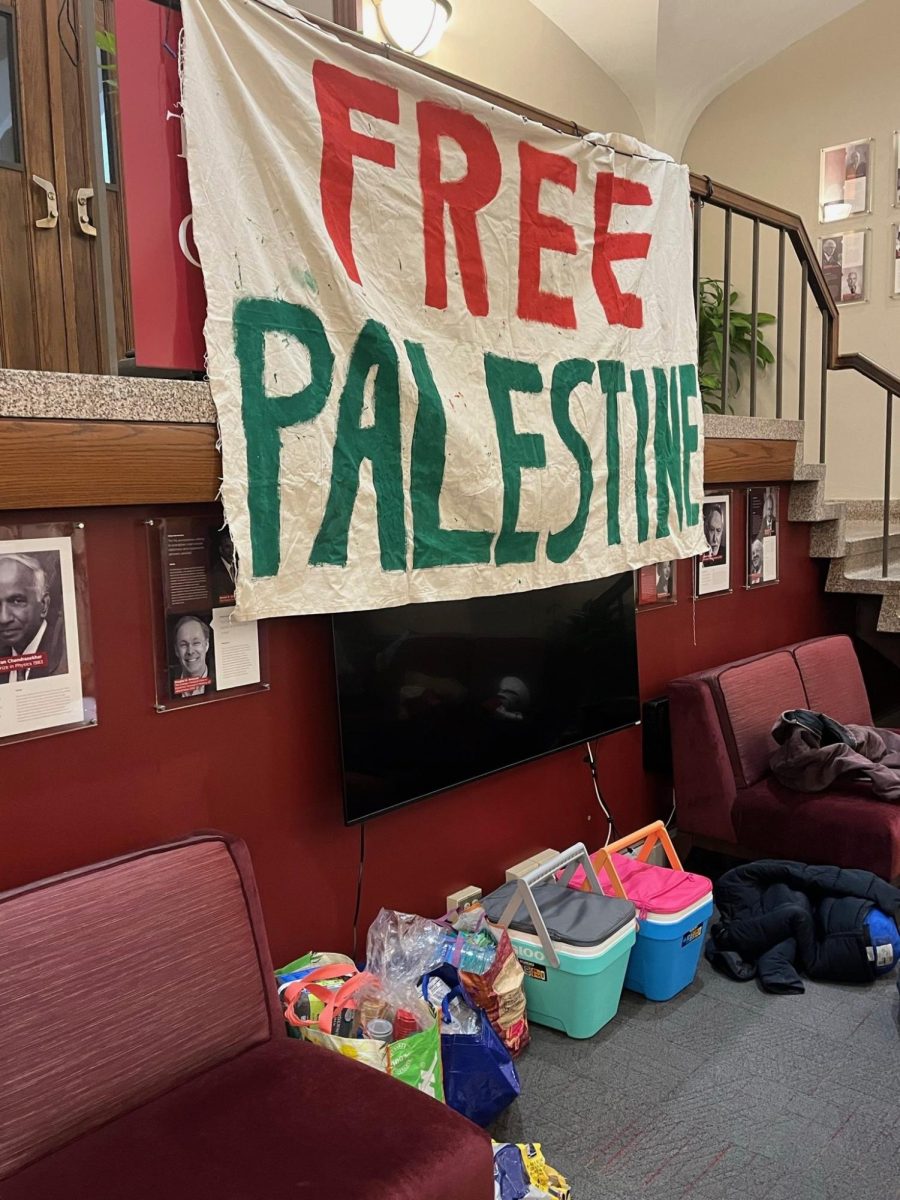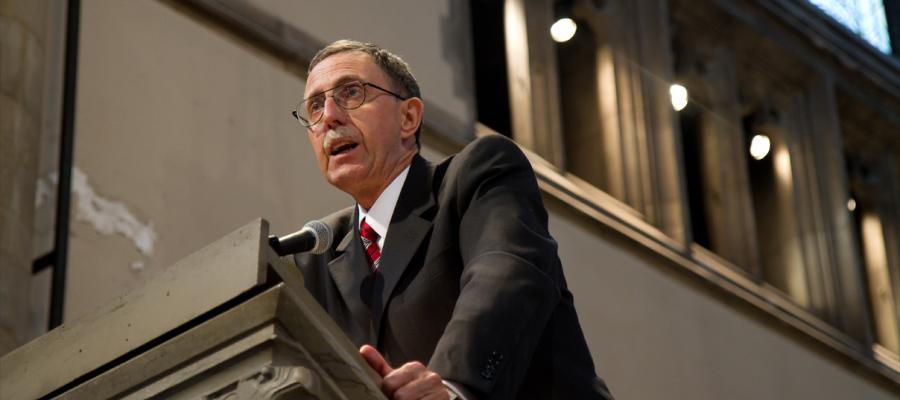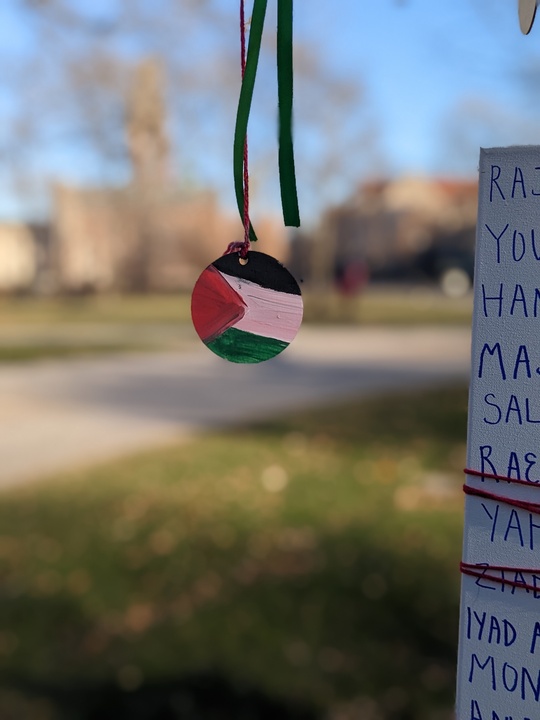On June 1, The Maroon published an op-ed that discouraged attendance at a Mandel Hall performance of Michael Tippett’s pacifist WWII–era oratorio A Child of Our Time. The writer argued that because “the piece leaves the listener complacent, both performing and listening to it is unproductive.” I agree that the work is problematic; it begs continued conversation about generalization, appropriation, and techniques of allyship, both in art and life. However, I believe the writer misinterpreted the complexities of the work’s musical message and underestimated the capacity of listeners. Instead of leaving a well-informed audience complacent, I believe A Child of Our Time offers a vital opportunity to consider the ugliness of progress; the impossibility of true empathy and the necessity to pursue it regardless; and the bravery of holding onto hope in the face of unspeakable horrors. For curious listeners, I believe the least productive response to the performance would be to sit out, and the most productive to sit with the work’s mission alongside its inadequacies.
Tippett himself was a complex figure. His father was a religious skeptic and political progressive; his mother was active in the women’s suffrage movement. He came out as gay generations before it became legal, and was removed from school because of it. He became a pacifist after a stint with the communist party, choosing imprisonment over participation in the war. Later, he educated himself in Jungian psychoanalysis as a tool for tackling not only personal but also political problems. In other words, the composer was constantly provoking dialogue and striving for solutions during a dark moment in history. Despite these efforts, however, Tippett was unable to transcend his upbringing as a privileged Anglo-Saxon man immersed in the values of Western classical music culture.
Similarly, the oratorio does not lend itself to a straightforward reading. It is unabashedly intertextual, bringing together ideas not only from earlier composers like Handel, Bach, and Berlioz but also contemporary dance music, atonal modernism, and (most centrally) African-American spirituals. Like the Jungian philosophy driving the text, the final section offers a forceful, affective nudge much more than it does a simplistic, happy ending. It appeals to hope rather than despair, and continued engagement rather than avoidance. To me, this work’s attempt to braid together drastically different textual, musical, and historical voices models a type of musical allyship that invites nuanced listening and critical reflection in listeners. The cyclical nature of the seasons that frame the oratorio’s text (mentioned in the original op-ed) conveys this nuance well: Spring, like winter, is not an eternal warm and happy ever-after. Rather, it offers a fleeting moment of light, an opportunity to prepare for the inevitable return of darkness in the endless march of nature.
The question, then, is whether to dismiss and ignore Tippett’s oratorio because his attempts at decentering his own musical voice can easily be read as appropriation, because his wish to forward a universal statement about violence and vengeance may seem to sidestep the horrific events of the Holocaust, or because his concluding attempts to encourage can be taken as some type of exoneration or appeasement. More challenging and ultimately more productive than dismissal, I would argue, is to engage—to understand its admirable goal alongside its numerous failures.
As the liberating power of strikes remain at the fore of our consciousness, it is important to reconsider when it is most effective to deny the legitimization of engagement, and when it is most productive to devote our ears and intellectual and emotional energies to a cause. I do have misgivings about a canonized European male composer of classical music being the dominant voice in this conversation. And frankly, I have misgivings about classical music’s power as a productive force of activism, as steeped as it is in histories of appropriation, hegemony, and various incarnations of white supremacy. But many of those still invested in classical music’s power and beauty (myself included) are also implicated in this history and wield significant privilege and capital. Perhaps these contemporary classical music enthusiasts are the ones who might be most productively nudged by a figure like Tippett and the musical languages he uses.
This is an era in which powerful institutions’ artistic and political choices waver between two approaches. On one side are superficial optics of multiculturalism and acceptance motivated by fear and ignorance. On the other, however, are potentially clumsy but genuine attempts to begin the process and practice of allyship—of decentering hegemonic ideologies, of listening to marginalized voices with open ears, of communicating with those in power to lighten the explanatory burden from the disempowered. I believe University Chorus, Motet Choir, and University Symphony Orchestra’s performance fell more into the latter category. I hope that UChicago’s musical programming continues in this vein—and that listeners and performers take its future offerings as an invitation for reflection, engagement, and hope.
Lindsay Wright is a musicologist, postdoctoral teaching fellow in the humanities, and violinist in the University Symphony Orchestra.







